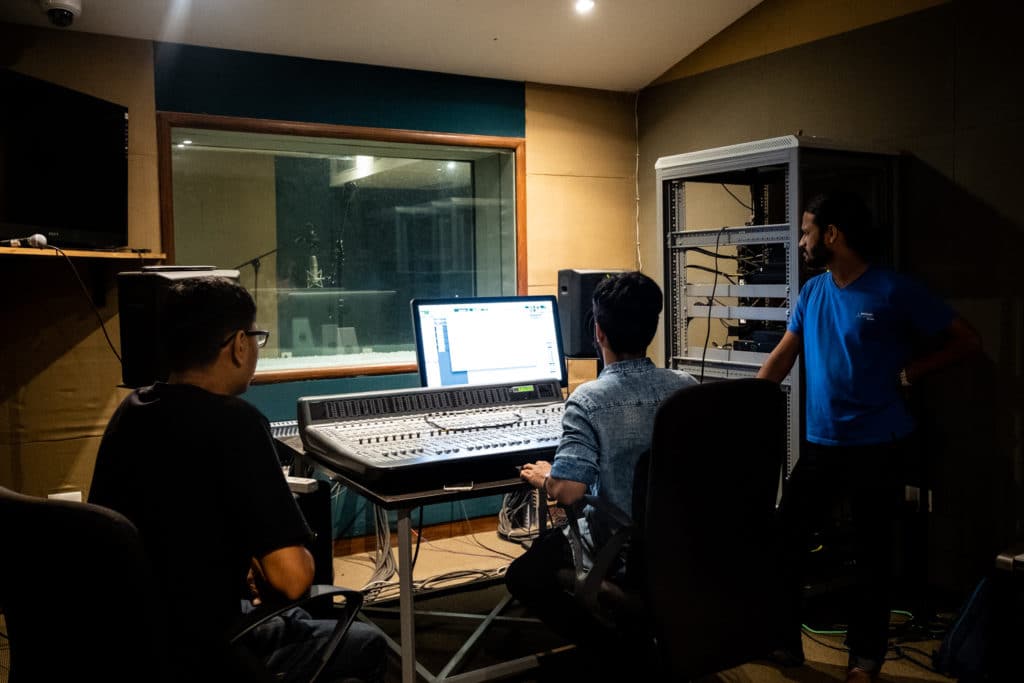Perhaps you have recently been on a movie marathon with friends, and all of a sudden, you became curious about the work that went into those films you watched. Indeed, the filmmaking industry is one that requires tons of steps. From the ideation to final execution, there are so many processes to get to the final product–the films you enjoy watching in cinemas. And as such, becoming a filmmaker is no easy feat as it comes with many roadblocks and challenges. If you are genuinely passionate about the craft, do not let this thought hinder you. After all, taking the first step is already a massive effort in itself.

As a first-time filmmaker, you are likely plagued with what seems to be millions of questions. Where should you start on your filmmaking journey? What tools or resources should you use to learn about the different techniques? What challenges will you possibly encounter while learning the craft? It can feel overwhelming when you think of all these questions at once, but one thing to remember here is you need not do everything at once. Take it one step at a time, and do not feel rushed to answer all these questions immediately.
Best 5 Tips for Newbie Filmmakers
Below, you will find some fool-proof tips that may come in handy as you go into the journey of becoming a filmmaker. From looking for discounts for film tools, for example, a Wondershare coupon or something similar to finding the right people to star in your film, here are some things that may help you as you go along.
Find the Right Cast
Casting is one of the most critical aspects of filmmaking, but the difficulty of the task is often underestimated. A lot of times, it can be easy to cast an actor who “looks” the part but does not necessarily possess the skill to execute a character. The casting process usually starts with identifying the specifications or character profile: age, gender, occupation, and the like. During auditions, however, you have to be critical about the actors you cast. Even if you are new to the filmmaking world, do not be afraid to cast people who you think are more experienced. You may not realize it, but actors want the same thing as you do–to make a great film.
Practice with Film Tools
Nowadays, you can find an array of film editing tools to download online. If you are inexperienced with using such software, start by using the trial version of different applications to familiarize yourself with the editing techniques. Once you find the right application, consider paying for a full version. As a pro tip, you can try looking for some discount codes to spend less but still get the full version of the software. For example, you can find coupons like a Wondershare coupon to get savings on your purchase.
Learn About Sounds and Music
In a film, the sound effects and background music can be a huge factor in conveying the emotions of the characters or story. For example, horror movies tend to be coupled with intimidating music that makes you feel anything can happen suddenly. Choosing the right sounds and music is crucial to ensure you deliver the right mood to your audience. To be able to do this successfully, you need to learn about how music works for different moods. Try watching movies of different genres and pay close attention to the music that is playing, then try to analyze how the music affected your viewing experience.
Always Take an Extra Shot
When you have tons of scenes to film in a day, you may feel rushed to get things done as quickly as possible to avoid delays. However, getting the perfect shot is always important, so even if you think you already got it, it always pays to take an extra one. Once you get to the editing room, it can be so easy to notice the smallest details that can throw you off. Without an extra shot, you may be forced to use one that is not up to your standard. With that said, make sure you also know how to limit the number of shots per scene. Try not to go overboard, and just make sure you have a spare in case the first one fails.
Space Out Filming Days
As a filmmaker, you will likely work on a tight schedule. Because of this, it is so common to cram filming days and try to get as much done in the shortest time possible. However, you also have to learn how to space out the filming days and give your cast and crew ample time to recover. As much as possible, do not film for too many hours in a day. Though this may mean additional filming days, you will notice a big difference since people will feel energized every time they get back to the set.
This article is written by Erica Jones. You can contact him at [email protected]





